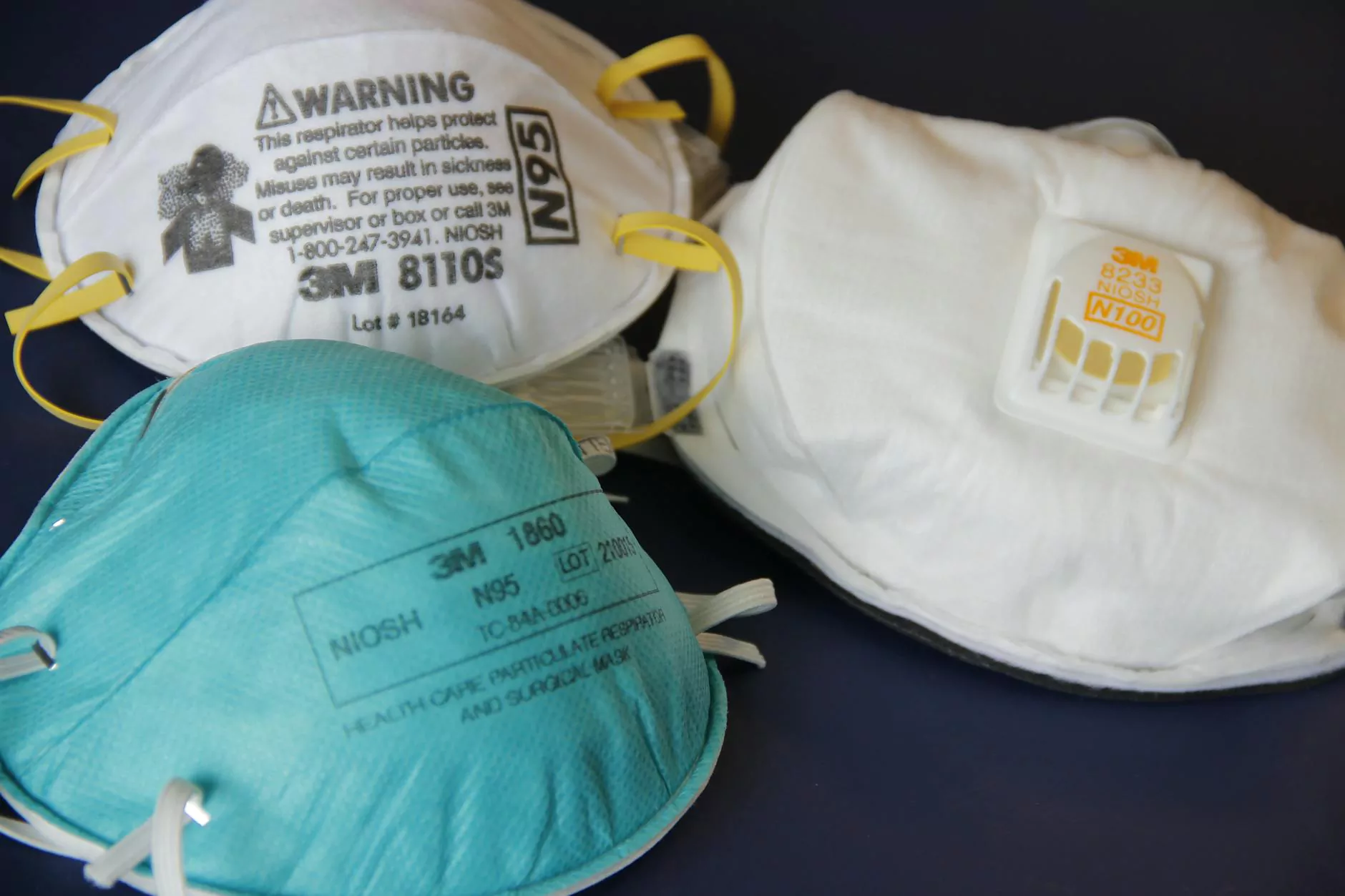Comprehensive Guide to Injectable Steroids and Their Role in Health & Medical, Sports Medicine, and Drugstores

Injectable steroids represent a critical component within the realm of medical treatments, sports performance, and wellness. As a versatile class of anabolic agents, they have revolutionized approaches to muscle building, injury recovery, and various medical conditions. This comprehensive guide aims to illuminate the multifaceted nature of injectable steroids, exploring their history, applications, benefits, risks, and how they fit within the broader framework of health and medical practice, sports medicine, and drugstore provisions.
Understanding Injectable Steroids: What Are They and How Do They Work?
Injectable steroids are synthetic derivatives of the hormone testosterone, engineered to maximize anabolic effects while minimizing androgenic side effects. Administered via intramuscular injection, they allow for rapid absorption into the bloodstream, ensuring a sustained and consistent release of the active compound. Their chemical formulation can include various ester groups, which influence the duration of action, ranging from short-acting to long-acting variants.
Key Components of Injectable Steroids
- Active Ingredient: Usually a modified form of testosterone or other anabolic steroids like trenbolone, nandrolone, or boldenone.
- Ester: Attached to the steroid molecule to regulate the release rate and half-life.
- Solvent and Carrier Oils: Designed to facilitate injection and absorption.
The Historical Evolution of Injectable Steroids in Medical and Athletic Domains
The journey of injectable steroids began in the mid-20th century, initially developed to treat hormonal imbalances and medical conditions such as delayed puberty, osteoporosis, and muscle-wasting diseases. Over time, their potent anabolic effects caught the attention of athletes and bodybuilders seeking rapid muscle growth and enhanced physical performance.
Today, injectable steroids are extensively used in clinical settings but also face scrutiny due to misuse and abuse in athletic communities. Their integration into health, sports medicine, and retail drugstores highlights their importance, regulation, and the ongoing debate surrounding their ethical and safe use.
Applications of Injectable Steroids in Health & Medical Sectors
Medical Uses and Benefits of Injectables
In the medical field, injectable steroids serve as vital tools for managing a variety of health conditions:
- Hormone Replacement Therapy (HRT): Used to restore testosterone levels in men with hypogonadism, ensuring normal hormonal balance.
- Muscle Wasting Syndromes: Help in counteracting muscle loss due to chronic illnesses like HIV/AIDS or cancer.
- Delayed Puberty: Support development of secondary sexual characteristics in adolescents with hormone deficiencies.
- Osteoporosis Prevention: Promote bone density in patients with severe osteoporosis or corticosteroid-induced bone loss.
Enhancement of Recovery and Rehabilitation
Injectable steroids play a pivotal role in facilitating faster recovery post-surgery or injury by promoting tissue regeneration and reducing inflammation. They are often integrated into treatment protocols to ensure patients regain strength and functionality swiftly.
Injectable Steroids and Sports Medicine: Optimization of Performance & Recovery
The Athletic Edge: Why Athletes Opt for Injectable Steroids
In sports medicine, injectable steroids are regarded as powerful agents for enhancing muscular strength, endurance, and resilience. They help athletes recover more rapidly from strenuous training sessions and injuries, enabling a higher training volume and intensity. Their ability to promote nitrogen retention, protein synthesis, and red blood cell production makes them important tools in sports performance optimization.
Types of Injectable Steroids Used in Sports
- Testosterone Enanthate and Cypionate: Mainstays for anabolic enhancement.
- Nandrolone Decanoate (Deca-Durabolin): Known for promoting muscle growth with relatively fewer androgenic side effects.
- Trenbolone Acetate: Potent anabolic agent used for rapid mass gains.
- Boldeonone Undecylenate: Enhances endurance and recovery.
Risks and Ethical Considerations
While the performance-enhancing benefits are significant, improper use of injectable steroids carries substantial risks including cardiovascular disease, hormonal imbalances, liver toxicity, and psychological effects. Ethical concerns about doping violations also highlight the importance of responsible, supervised use within sanctioned sports environments.
The Role of Drugstores in Providing Injectable Steroids
Regulation and Accessibility
In reputable drugstores and pharmacies, injectable steroids are dispensed under strict medical supervision and prescription. Their availability is governed by national laws aimed at preventing misuse and abuse. Certified healthcare professionals determine the necessity, dosage, and duration of treatment, minimizing risks associated with unsupervised use.
Over-the-Counter Access and Risks of Illicit Purchases
Despite regulations, illegal markets often sell counterfeit or contaminated injectable steroids, which can pose serious health threats. Consumers should be vigilant, sourcing from licensed providers and consulting qualified medical personnel to ensure safety and efficacy.
Safe and Responsible Use of Injectable Steroids
Important Guidelines for Users
- Consult with Healthcare Professionals: Always seek medical advice before initiating steroid therapy.
- Adhere to Prescribed Doses and Durations: Overuse can lead to adverse effects, so follow medical instructions meticulously.
- Monitor Health Parameters Regularly: Blood tests and check-ups help catch side effects early.
- Be Aware of Side Effects: Potential risks include acne, hair loss, liver strain, hormonal imbalances, and mood swings.
- Combine with Lifestyle Choices: Proper diet, hydration, and exercise amplify benefits while minimizing risks.
Future Perspectives: Innovations and Ethical Use of Injectable Steroids
The landscape of injectable steroids continues to evolve. Advances in pharmaceutical formulations aim to develop safer, more targeted agents with fewer side effects. Researchers are also exploring gene therapy and regenerative medicine as alternatives to traditional steroids, promising ethical and health-enhancing developments.
Moreover, the importance of education about responsible use grows, with medical institutions and regulatory agencies emphasizing strict adherence to legal and safety standards. As the understanding of steroids deepens, so does the potential to harness their benefits ethically for medical and sports purposes.
Conclusion: Harnessing the Power of Injectable Steroids for a Better Future
In the intersecting worlds of health & medical care, sports medicine, and responsible drugstore retailing, injectable steroids hold immense potential for improving lives—whether through restoring hormonal balance, aiding recovery, or enhancing athletic performance. Their power, however, comes with significant responsibility. Proper medical oversight, ethical considerations, and ongoing research are essential components to maximize benefits while safeguarding health.
By understanding their complex nature, applications, and risks, individuals and professionals alike can promote safer, more effective use of these potent substances. With continued innovation and responsible practices, injectable steroids will remain integral to advancing health, performance, and wellness in the years to come.









